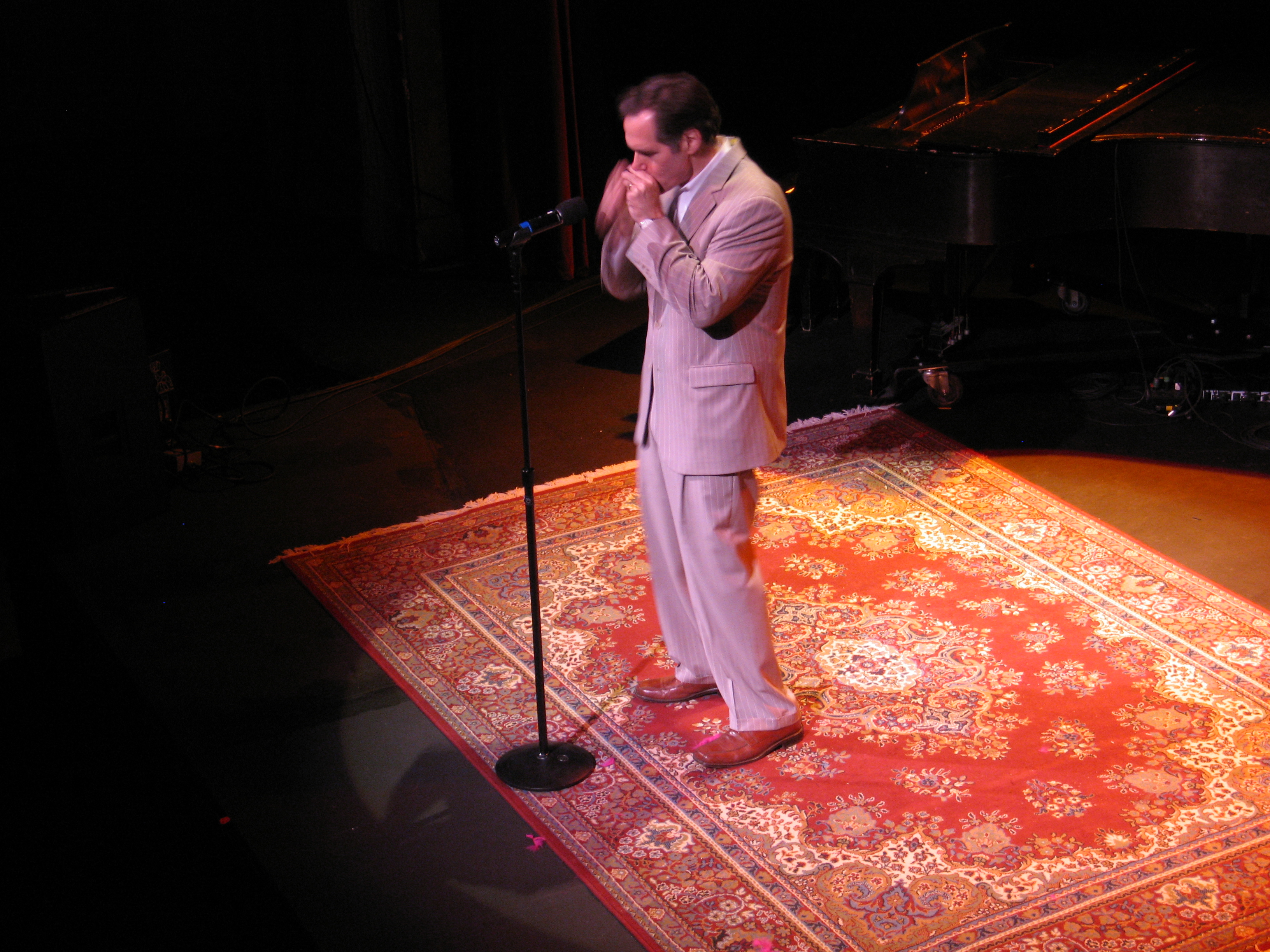
Hunter at SPAH 1997

Photo Courtesy: Michael Will
The SPAH (Society for the Preservation and Advancement of the Harmonica) Convention is an annual gathering of hundreds of harmonica players; it typically includes more than a few of the greatest harmonica players in the world. This year’s convention, held in Detroit, Michigan, USA from August 19-24, featured a seminar and performance by Richard Hunter, plus seminars and performances by jazz greats Pete Pedersen and Mauricio Einhorn, classical virtuosos Alan “Blackie” Shackner and Douglas Tate, blues great Jerry Portnoy (who has worked as a sideman to both Muddy Waters and Eric Clapton), West Coast blues star Mark Hummel, ex-Brubeck sideman Peter Ruth, session pros Rob Papparozzi (Cyndi Lauper, Bernard Purdie) and Kirk “Jellyroll” Johnson (the Judds), and many others.
A review of Hunter’s seminar and concert performances from the convention is included below by permission of the author, Winslow Yerxa. This review appeared originally in a post to the Harp-L Internet list; the original can be found in the Harp-L Archives. It is printed here unedited.
“Richard Hunter in person is a presence that exudes warmth, clarity, wit, and a dazzling imagination that needs a large blank canvas (or large empty stage) on which to draw its shapes.
He showed up this year at the first SPAH at which I’ve seen him. I’ve known him from his CD, email and phone conversations, and his landmark book Jazz Harp. But the man and the performer, as always, convey extra dimensions in person that are well worth experiencing.
He gave a seminar of which I actually managed to catch a little (I missed most of this year’s excellent crop due to rehearsals). He gave such clear and logical — and witty — accounts of his concerns, that one felt in the presence of some celestial object that somehow clarified the rest of the known (and even a good chunk of the unknown) universe.
His Saturday night performance was quite a feat. Standing on a stage alone with nothing but a case of (mostly) diatonic harmonicas and for 45 minutes enthralling a crowd that has a strong though subsiding element of anti-diatonic, anti-blues Minnevitch-or-die attitude is more than an exercise in chutzpah and charm. His musicianship was superb, his technique ravishing, and his composing and arranging skills both moving and refreshing. His use of independent right and left side melodies at times had me forgetting I wasn’t listening to two or three musicians.
My act was to follow his, and I’d been nervous all week. Filisko was playing in my group and later we found we’d both been very soothed by what Richard played. This is curious. Ordinarily, backstage nerves are heighten by *everything* that happens before performing. Somehow what Richard did, brilliant as it was, was reassuring in its clarity and coherence.
Thank you, Richard, for favoring us with such beautiful playing and speaking, and for doing the things you’re doing to extend the context and vocabulary of the harmonica.”
Tags In
Related Posts
Leave a Reply
You must be logged in to post a comment.
WHAT’S NEW
Categories
- Audio/Video
- Blog
- Blue Future
- Digitech RP Tricks and Tips
- Discography, CDs, Projects, Info, Notes
- Featured Video
- For the Beginner
- Gallery
- Hunter's Effects
- Hunter's Music
- Huntersounds for Fender Mustang
- Meet the Pros
- More Video
- MPH: Maw/Preston/Hunter
- My Three Big Contributions
- Player's Resources
- Pro Tips & Techniques
- Recommended Artists & Recordings
- Recommended Gear
- Recorded Performances
- Reviews, Interviews, Testimonials
- The Lucky One
- Uncategorized
- Upcoming Performances
- Zoom G3 Tips and Tricks